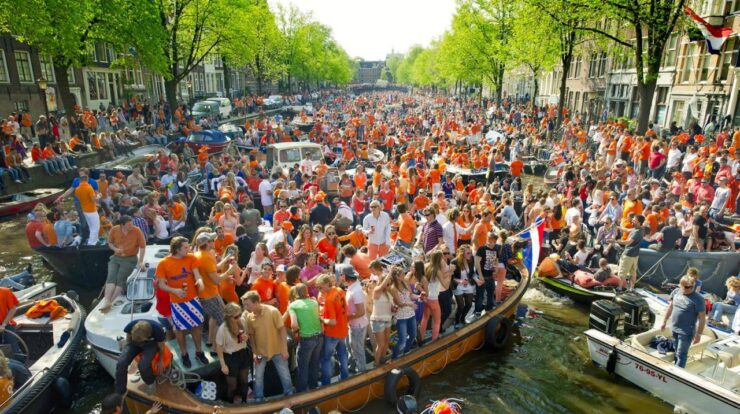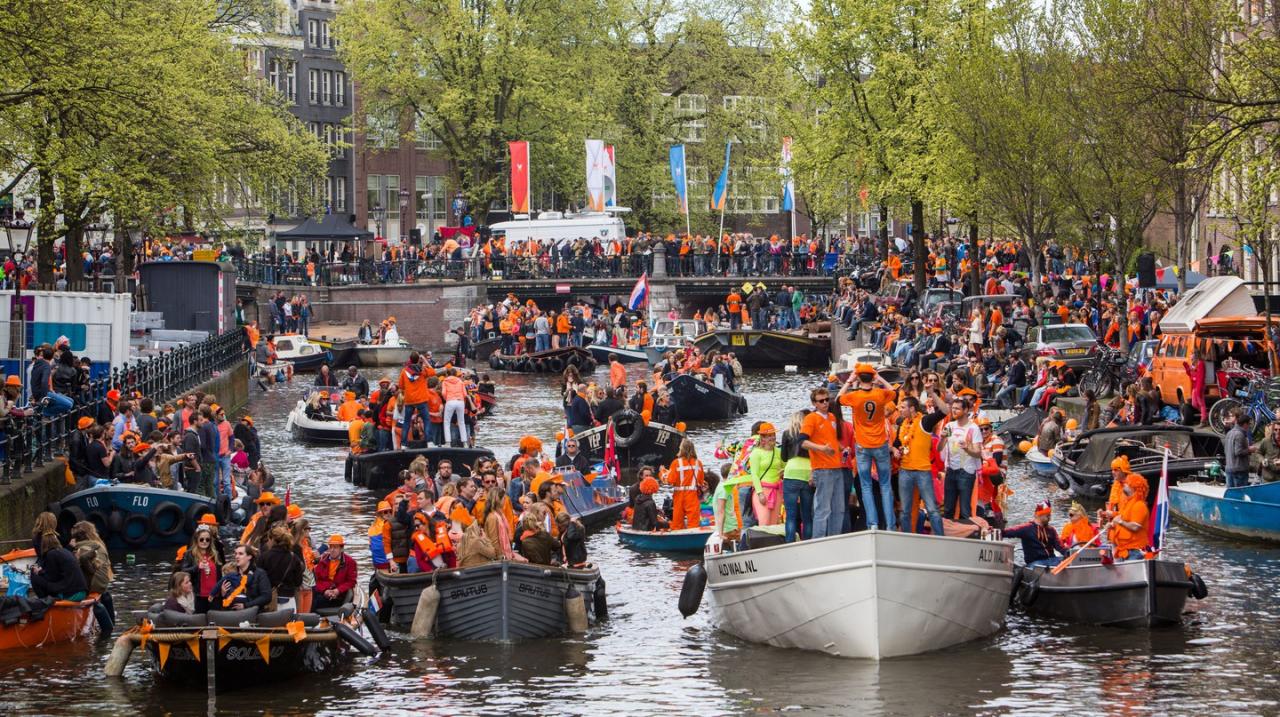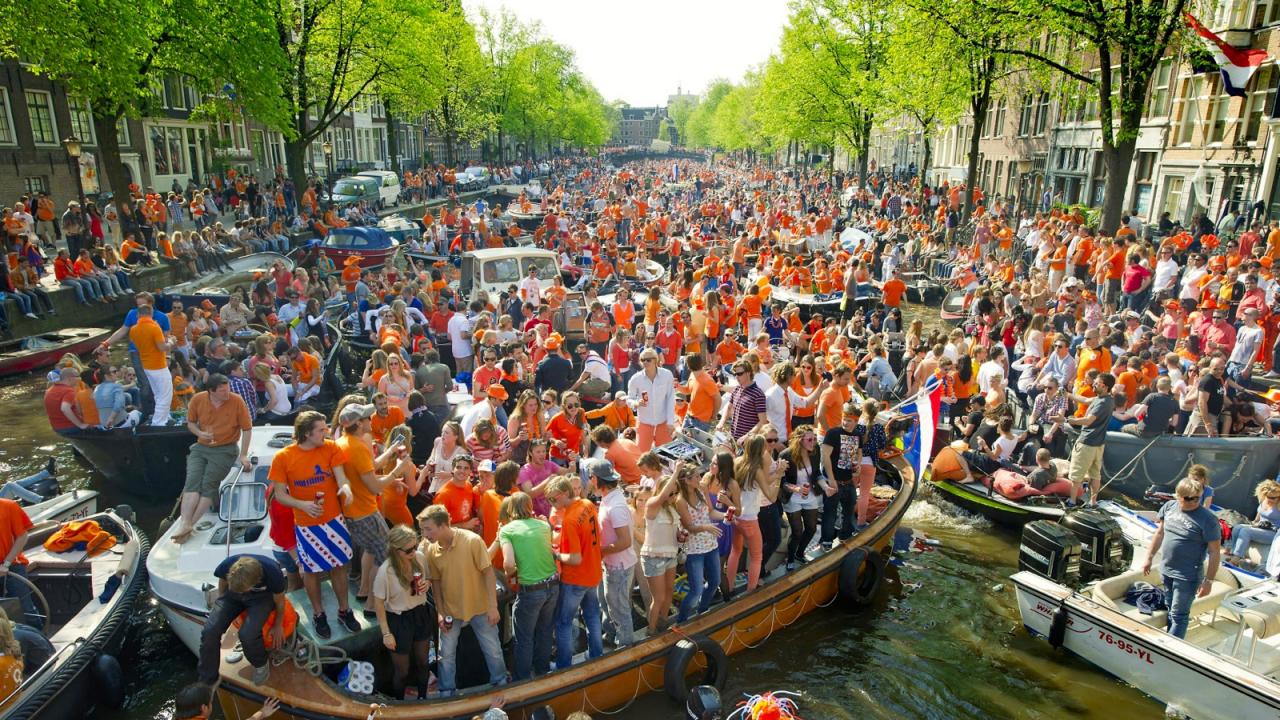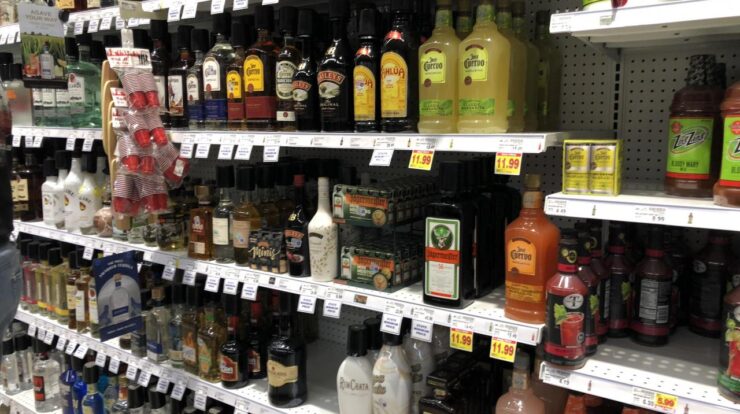
Kingsday Netherlands, also known as Koningsdag, is a national holiday in the Netherlands celebrated annually on April 27th. It is a day filled with vibrant festivities, flea markets, music festivals, and street parties, bringing together people from all walks of life to celebrate the Dutch monarchy and national pride.
The origins of Kingsday can be traced back to 1885 when it was first celebrated as the birthday of Queen Wilhelmina. Over the years, the celebration has evolved into a day that embodies the spirit of Dutch culture and unity, with each city and town adding its unique traditions to the mix.
Koningsdag: A Dutch Celebration of Monarchy and National Unity

Koningsdag, or King’s Day, is a national holiday in the Netherlands celebrated on April 27th. It marks the birthday of the reigning monarch, currently King Willem-Alexander. The event is a vibrant display of Dutch culture, with festivities that include flea markets, music festivals, and street parties.
Historical Significance of Koningsdag

Koningsdag has its roots in the 19th century, when it was known as “Prinsessedag” (Princess Day) and celebrated the birthday of Princess Wilhelmina. In 1949, when Wilhelmina became queen, the holiday was renamed Koningsdag. The event has since evolved into a celebration of the Dutch monarchy and national unity.
Traditional Customs and Celebrations
Koningsdag is a day for the Dutch to come together and celebrate. Traditional customs include:
- Flea Markets:Throughout the Netherlands, cities and towns host flea markets where people can buy and sell used goods.
- Music Festivals:Music festivals are held in major cities, featuring both Dutch and international artists.
- Street Parties:Streets are closed off to traffic and transformed into lively party zones, with music, food, and drinks.
Cultural Impact and Economic Significance, Kingsday netherlands
Koningsdag has a profound cultural impact on Dutch society. It fosters a sense of national unity and pride. The event also has a significant economic impact, with businesses benefiting from increased tourism, retail sales, and hospitality services.
Global Recognition and Influence
Koningsdag traditions have been adopted by other countries, including Canada, Australia, and New Zealand. In these countries, the event is typically celebrated by Dutch expatriates and their communities.
Future Trends and Innovations
Koningsdag is constantly evolving, with new trends and innovations emerging each year. These include:
- Use of Technology:Social media and mobile apps are increasingly being used to share information about Koningsdag events and activities.
- Sustainability Initiatives:Organizers are implementing sustainable practices to reduce the environmental impact of Koningsdag celebrations.
- Inclusive Celebrations:Koningsdag is becoming more inclusive, with efforts to make the event accessible to people of all abilities and backgrounds.
Wrap-Up
Kingsday Netherlands is not just a celebration but a testament to the rich cultural heritage and strong sense of national pride that binds the Dutch people together. It is a day that fosters unity, encourages community spirit, and showcases the vibrant tapestry of Dutch culture on a global stage.
FAQ Guide: Kingsday Netherlands
When is Kingsday Netherlands celebrated?
Kingsday Netherlands is celebrated annually on April 27th.
What are some of the traditional activities associated with Kingsday Netherlands?
Traditional activities include flea markets, music festivals, street parties, and wearing orange, the national color of the Netherlands.
What is the significance of the color orange in Kingsday Netherlands?
Orange is the color of the Dutch royal family, the House of Orange-Nassau, and has become a symbol of national pride and unity during Kingsday celebrations.





